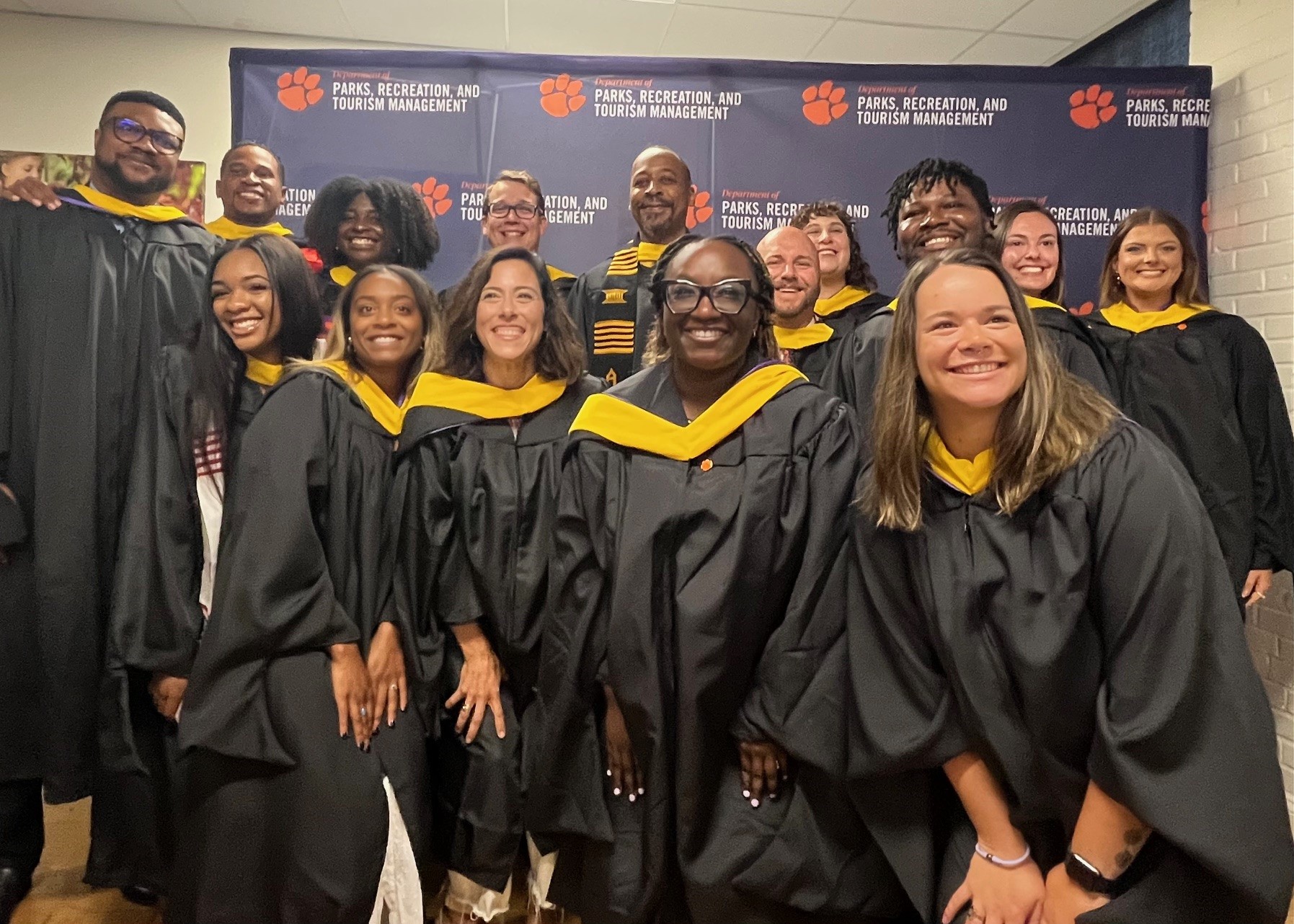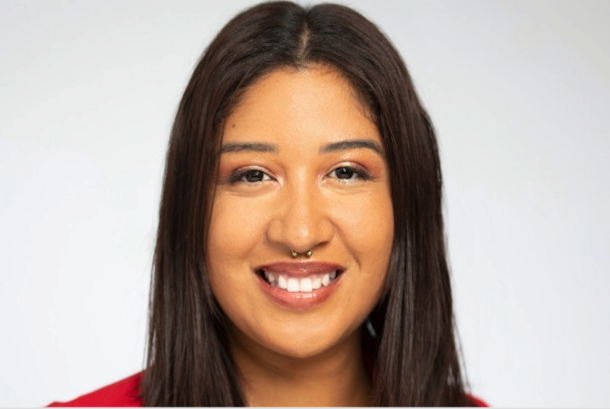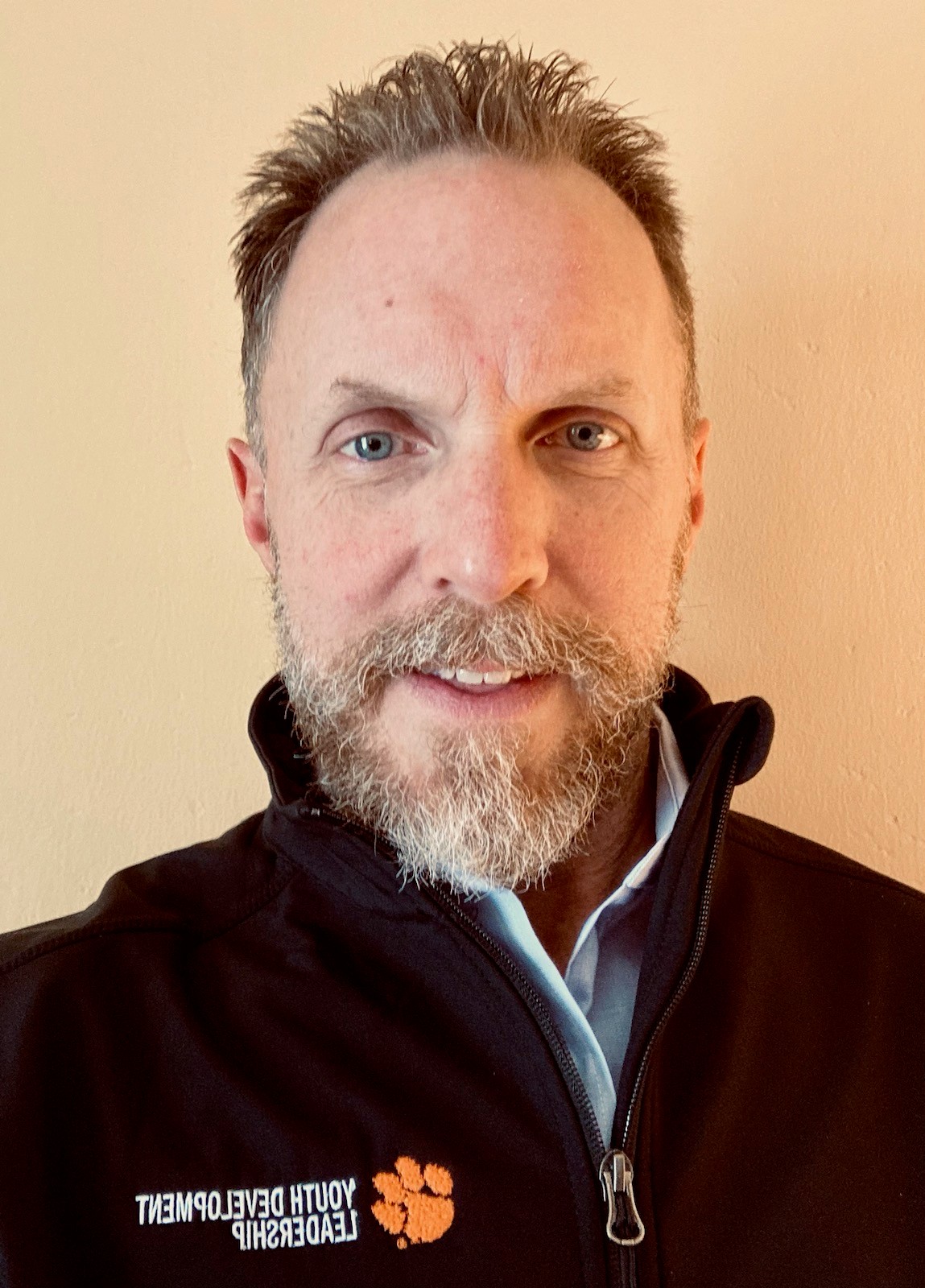- Degrees
- Students
- Programs
- Research
- About
Youth Development Leadership, M.S. (Non-thesis, Online)

“The Youth Development Leadership master’s degree program doesn’t just provide a qualification; it's a catalyst for career growth. Because the YDL program uses a cohort model in which students take their courses together as they move through the program, our students don’t just learn from the faculty, they learn from each other. With the support of faculty and peers, the YDL program provides an encouraging environment in which everyone can succeed.”
Barry Garst, Ph.D.Youth Development Program Professor and CoordinatorParks, Recreation and Tourism Management
Gain the competencies, knowledge and skills to help young people develop into healthy, competent, coping and contributing citizens. The online, non-thesis master's degree program in Youth Development Leadership prepares students to address issues facing youth in the context of family and community with an emphasis on positive outcomes through a dynamic learning environment.
For more information, please join us by registering for a PRTM Online Graduate Programs Information Session or emailing questions to Erica King at prtmonline@clemson.edu.
-
Overview
The M.S. in Youth Development Leadership is an interdisciplinary degree primarily involving departments and units in the College of Behavioral, Social and Health Sciences but also including academic areas from other colleges and units at Clemson University.
Students take one course at a time for seven weeks, allowing working professionals to focus on one course at a time. The duration of the program is two years, similar to most traditional masters programs.
The program is designed to:
- Empower students to focus on strengths and assets within the context of family and community that will promote positive youth development.
- Identify and examine physical, emotional, environmental, and social issues related to being a young person in today's society.
- Prepare professional educators and leaders at all program and management levels for careers in schools, agencies, institutions, and community groups that serve youth.
- Train new and current professionals to be well prepared with increased knowledge and enhanced skills in the youth development area.
- Prepare leaders who will have an immediate impact on youth development in South Carolina and around the nation.
- Link formal and non-formal prevention and intervention youth programs to enhance the learning experience for students.
- Enhance youth serving agencies and organizations by preparing professionals who are competent in child and adolescent growth and development, grant writing, and youth program assessment.
The program partners with youth-related agencies/organizations and engages them in learning and experiential opportunities for students.
Students use this degree and the knowledge they gain in the program to prepare them for many opportunities. They may take positions of leadership in youth development organizations, agencies, and institutions such as schools, 4-H, Boys and Girls Clubs, nonprofit organizations, faith-based organizations, recreation/community agencies, military settings, land grant extension services/programs, and many others. They may be supervisors of youth development staff including education and social service work environments, faith-based advocates for youth well-being, program evaluators, fundraisers and grant writers, administrators, and supervisors.
-
Application Deadline
Applications are reviewed throughout the year. Accepted students enroll as a cohort every fall and visit campus in mid-August for a two-day new student orientation, and start taking their first course: Theories of Youth Development.
-
Admission Requirements
A complete application packet should include:
- Proof of a baccalaureate degree with a minimum grade-point ratio of 2.75 on a 4.0 scale
- A Graduate Record Examination (GRE) score is not required but is recommended for those who believe it will strengthen their application
- A personal statement
- Two letters of reference
- Resume
- Undergraduate degree transcripts
Experience in the field of youth development is preferred.
Visit Clemson University Graduate School Admissions to learn more about admission requirements, how to apply and important dates.
-
Program Requirements
The Master of Science in Youth Development requires 36 semester hours of coursework* as follows:
- YDP 8000 – Theories of Youth Development: An Applied Perspective (3)
- YDP 8010 – Child and Adolescent Development (3)
- YDP 8020 – Youth Development Programming in a Contemporary Society (3)
- YDP 8030 – Creative and Ethical Leadership in a Changing Society (3)
- YDP 8040 – Assessment and Evaluation of Youth Programs (3)
- YDP 8050 – Youth Development in the Context of Family (3)
- YDP 8060 – Youth Development in the Context of a Global and Diverse Society (3)
- YDP 8080 – Grantsmanship (3)
- YDP 8090 – Management of Staff and Volunteers (3)
- YDP 8880 – Special Topics in Youth Development Leadership (3)
- YDP 8900 – The Profession of Youth Development Leadership (3)
- PADM 8410 – Public Data Analysis (3)
*Courses may be substituted for YDP 8880 and YDP 8900 for those who seek more research experience or preparation for a doctoral program.
Click here to access the 2022 YDL Student Handbook which provides additional information about program requirements.
-
Course Delivery
All courses are offered in an accelerated format and supported by weekly, 90-minute Zoom meetings with instructors. Minimum technology requirements for this program include access to email and the internet.
Canvas is the software that serves as the basic structure of every course, including:
- The location of the syllabus
- Instructor communication
- Course assignments
- Grades
- Discussion boards
- External links
Zoom allow instructors and students to be online together (synchronous learning) to participate in lectures, student presentations, and discussion. Often, instructors schedule a weekly block of time (90 minutes), often one night a week. Students can schedule all other course activities at a time of their own choosing and in congruence with other students for team presentation preparation and individual assignments.
-
Campus Visits
Students admitted for an August start come to campus for two days of on-campus orientation during the first week of the semester, where students will:
- Meet the other students in the program, as well as the faculty who will be teaching the courses.
- Engage in team-building activities that will help them become "fast friends" with their fellow students and prepare them for working together throughout the program.
- Take part in a seminar with CCIT (Clemson Computing and Information Technology) on how to take courses online.
- Receive instruction on the availability and use of library services.
- Begin their first course, Theories of Youth Development, while on campus to get comfortable with the technology used for instructional delivery.
Students also come to campus during their second year for two days in April, where they:
- Deliver a presentation for their Assessment and Evaluation of Youth Programs course (YDP 8040)
- Participate in a PRTM research forum
- Attend the annual YDL Second Year Student Banquet and Awards Ceremony
- Begin to build their professional e-portfolios
Click here to access the YDL Student Handbook which provides additional information about campus visits.
-
E-Portfolio Development
Professional e-portfolios are a required capstone experience of all M.S. Youth Development Leadership students. Professional e-portfolios include:
- Resume
- Professional Philosophy Statement
- Artifacts or Deliverables produced in each course
- Reflections on Artifacts
- Final Reflection on Review of all Artifacts and Current Professional Activities and Future Goals
These e-portfolios serve three purposes:
- Completion of YDP 8900 - The Profession of Youth Development Leadership*
- Preparation for the Comprehensive Exam required by the Clemson University Graduate School
- Strategic demonstration of youth development leadership skills to prospective employers
*Courses may be substituted for YDP 8880 and YDP 8900 for those who seek more research experience or preparation for a doctoral program.
-
Student Satisfaction
About 64% of graduates who completed a satisfaction survey after graduation reported that they had received an increase in salary and/or new professional opportunities in the field of youth development since graduation.
Survey results also demonstrate that the M.S. in Youth Development Leadership program has a high student satisfaction rate. Students who completed a student satisfaction survey partway through their degree unanimously responded “Yes!” when asked if they would recommend the program to a colleague.
Students also provided some open-ended feedback about the program, including:
- I really enjoy this program! I know we have only completed three courses so far, but I have learned much about youth development programming.
- I have been very impressed with the organization of the program and the orientation process. Being away from campus, the orientation gave me a feeling of being a part of Clemson University. There are so many long-distance courses out there and the reputation for getting a degree online is worrisome. The orientation dispelled any thoughts of the devaluation of the program due to the online delivery system.
- I must say that I have been more than pleased with the quality of instructors for this program! From my first professor, it has been a busy and rewarding trip. (Trip as in good trip!) I am excited about the remainder of the ride and I have no desire to ask, ‘Are we there yet?’
-
Financial Information
Tuition and Fees
The Youth Development Leadership Master's degree is a Tier 4 program. Explore information on tuition and fees here: Clemson University Tuition and Fee Details.
Financial Aid
For information regarding Financial Aid, please contact the office of Student Financial Aid. You might also investigate in your own community, through community foundations or your employer, to see what financial support might be available.
Quinn Fellowship Program
To apply for the Mary and Leo Quinn Fellowhip for Youth Development Leadership, established in loving memory of Mary and Leo Quinn by their children, or the William H. Quinn Fellowship for Youth Development Leadership, established by YDL founding coordinator William H. Quinn, click here.
The deadline to apply is June 15 each calendar year.
-
Donate to the YDL Scholarship Fund
Many of our alumni began the M.S. YDL Program taking Foundations of Youth Development with Dr. Larry Allen. If you are a more recent graduate, your experience nonetheless was influenced by Dr. Allen who was a leader in creating and building this degree program. An award in his name has been established to provide scholarship and professional opportunities to M.S. YDL students to strengthen the field of youth development through leadership and service to the field. We ask you to consider a donation to The Lawrence R. Allen Professional Contributions to the Field of Youth Development Leadership Award in his honor to assist our M.S. YDL students in pursuing their own productive careers in the field.
You can do so at by visiting the Clemson Forever website to make a secure online gift. To find the fund, please click on the ‘search for a fund’ button and enter in: Dean Lawrence R. Allen Professional Contributions to Youth Development Leadership Award.
If you wish to pay by mail you can send a check payable to Clemson University and note the program name and Cubs number on your check. The CUBS # is 2100970. Finally, you can pay by phone with a credit card at 864 656-5896 and also provide the program name and CUBS Number.
Our faculty are committed to supporting the professional opportunities of our graduates through collaborations on program development and evaluation. Along with our current collaborations with the Boys and Girls Clubs of America, we are involved with M.S. YDL graduates in collaborating with them on their program initiatives in their professional work environments. Please don’t hesitate to contact us should you have an interest in our involvement on one of your projects.
-
Frequently Asked Questions
What is the orientation of the YDL program?
The Youth Development Leadership program is organized to provide knowledge and experience to students who desire to advocate for, and directly support, the positive youth development of all youth in communities. Students will develop skills to collaborate with professionals and the public for the well-being of all youth. Finally, students are provided skills that will allow them to position themselves uniquely in the professional network of youth development that will allow them opportunity to promote youth development and attain career success in this chosen field.
What can I do with this degree?
Students use this degree and the knowledge they gain in the program to prepare them for many opportunities. They may take positions of leadership in youth development organizations, agencies, and institutions such as schools, 4-H, Boys and Girls Clubs, nonprofit organizations, faith-based organizations, recreation/community agencies, military settings, land grant extension services/programs, and many others. They may be supervisors of youth development staff including education and social service work environments, faith-based advocates for youth well-being, program evaluators, fundraisers and grant writers, administrators, and supervisors.
Who are the students enrolled in the masters online degree program in youth development?
Current students range in age from 22-50, and are working in varied professional environments, including schools, 4-H, Boys and Girls Clubs, nonprofit organizations, social services, summer camp organizations, and the military. Given the online feature of this masters degree program, they are geographically located throughout the United States.
Who are the faculty?
Instructors are in departments and colleges within Clemson University in Clemson, South Carolina. They are affiliated with a cross-section of academic units, including the College of Behavioral, Social and Health Sciences. As an online program, instructors who lead youth-serving organizations and are known nationally in their field serve as instructors.
How is this program set up and how long does it take to finish?
Each course is taken consecutively (one course at a time) for seven weeks to allow the part-time or full-time worker to enroll and complete a graduate degree program. Yet, a student completes the masters degree in the time typical of most on campus residential masters programs: two years.
What exactly happens in an online course?
Activities and requirements will vary across instructors; however, there are some common activities in most courses. For instance, Canvas is the software that serves as the basic structure of every course, including the location of the syllabus, instructor communication, course assignments, grades, discussion boards, and external links. Adobe Connect or Zoom allow instructors and students to be online together (synchronous learning) to participate in lectures, student presentations, and discussion. Often, instructors schedule a weekly block of time (90 minutes), often one night a week. Students can schedule all other course activities at a time of their own choosing and in congruence with other students for team presentation preparation and individual assignments.
Is the Graduate Record Examination (GRE) required?
The GRE is not required, but it may strengthen an application. Learn more about the GRE.
Is there a rolling admissions process in the youth development leadership program?
Applications are reviewed throughout the year. Accepted students enroll as a cohort every fall and visit campus in mid-August for a two-day new student orientation.
What happens at student orientation?
Many things. Students get a chance to meet the other students in the program as well as the faculty who will be teaching the courses. They will also engage in team-building activities that will help them become "fast friends" and prepare them for working together throughout the program. Students will have a seminar with CCIT (Clemson Computing and Information Technology) on how to take courses online. They receive instruction on the availability and use of library services. Students will also begin their first course, Theories of Youth Development, while on campus to get comfortable with the technology.
What financial aid is available to cover the costs of the program?
Clemson University has a financial aid office that is available to all students whether on campus or enrolled in distance education programs. You might also investigate in your own community, through community foundations or your employer, to see what financial support might be available.
Who can I contact for further information?
Contact Barry A. Garst, Ph.D., at youthdev@clemson.edu for additional information.
-
Find Out More
Please contact Dr. Barry A. Garst, program coordinator, at youthdev@clemson.edu for more information.
Student Testimonials
Antonia Rangel-Caril
M.S. in Youth Development Leadership
"The Youth Development Leadership Master's program at Clemson has been an invaluable experience that supported me in the trajectory of my career. I recently accepted a position as the Director of Youth Advocacy at the Boys & Girls Club of America. The courses, such as, Management of Staff & Volunteers, and Youth Programming Adaption and the ability to use my own personal experiences for assignments has been a great experience in my journey as a youth development professional. The program has given me the confidence to meet the needs of youth at a national level by providing me tools and a deeper understanding of youth development principles."


